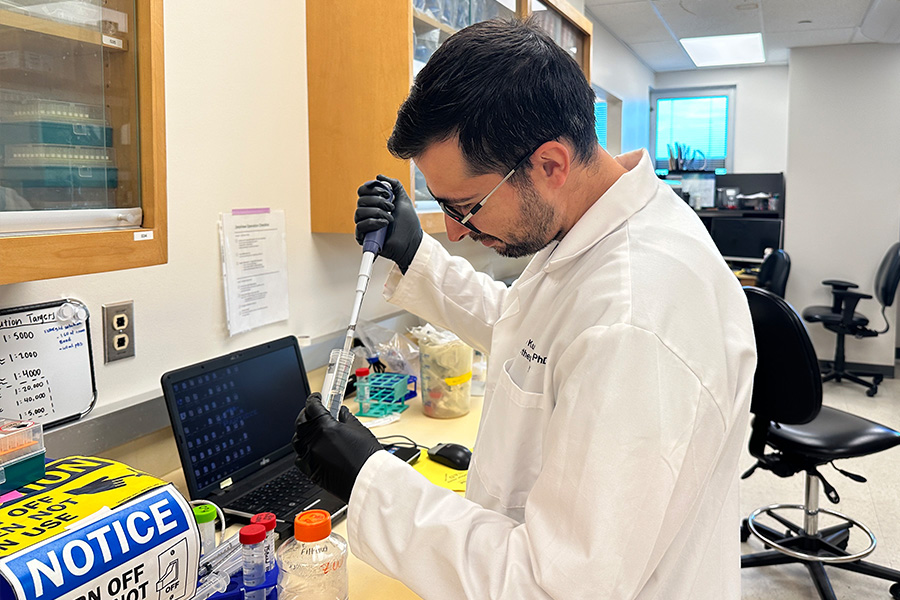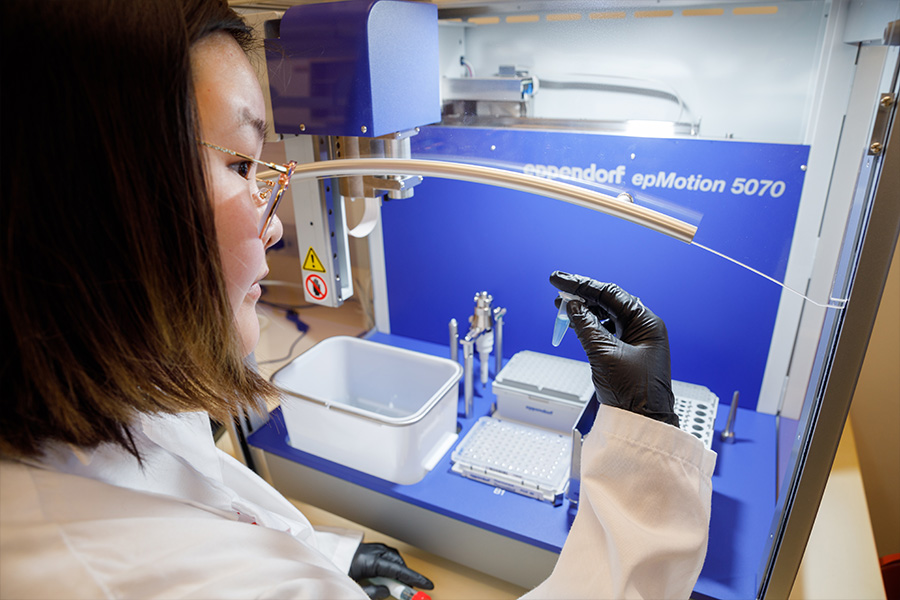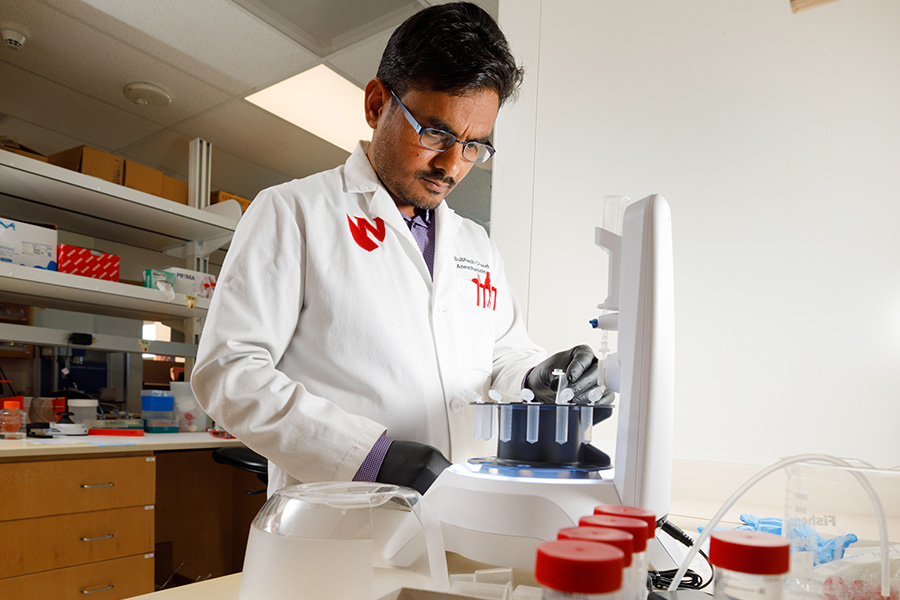Dr. Yelamanchili's Laboratory

Sowmya Yelamanchili, PhD, aims to understand the role of regulatory molecules such as genes, proteins, and microRNAs in the pathogenesis of neurological disorders and drug addiction.
Methamphetamine and related amphetamine compounds, which are potent psychostimulants, are among the most commonly used illicit drugs. With more than 35 million users worldwide, meth abuse poses significant health and economic threats globally. Acute and chronic doses of meth have been shown to produce long-term damage in many brain regions. However, the mechanisms underlying meth neurotoxicity are still not known. An important and emerging player is extracellular vesicles and their role in chronic meth abuse.
Extracellular vesicles have been garnering increasing interest for their role in several neurological disorders and understanding their role in the brain during drug abuse is just beginning to emerge. EVs can release their cargo into target cells and trigger downstream signaling pathways.
Our studies have revealed that EV-associated microRNA cargo can be responsible for neuronal injury. However, EV miRNA cargo and their involvement in meth-associated neurotoxicity are poorly understood, thus warranting further studies in this direction. We are particularly interested in understanding the effect of such EV-carried miRNAs on neurons. We have successfully used various model systems including human biospecimens, rhesus macaques, rodent models and in vitro work to study the pathogenesis in the brain.
Present work in my laboratory focuses on investigating the role of extracellular vesicles and their microRNA cargo in chronic methamphetamine abuse and during HIV infection.
Apart from the projects highlighted above, my laboratory is also interested in studying the long-term effects of prescription drugs (pain medications and anesthetics) on the brain. To study these effects, we are developing both animal and in vitro models in the laboratory.
Lab Personnel

Adrian Domene Rubio, PhD
Postdoctoral Research Associate

Dalia Moore
Research Technologist I
Lab Alumni
Austin Gowen
Graduate Student
Luke Hamilton
Graduate Research Assistant
Katherine Odegaard
Graduate Research Assistant
Mason Savine
Research Technologist
Farah Shahjin
Graduate Research Assistant
Sydney Wheeler
SURP, Summer 2020 Intern
- Amphetamine/Opioids
- Addiction
- Chronic Inflammation
- Stem cells and brain organoids
- MicroRNAs and HIV/HAND
- Extracellular Vesicles
- Tissue-Derived Extracellular Vesicles
- Immunostaining and In-Situ Hybridization
- Small Rna Sequencing
- High Throughput Qrt-Pcr Assays
- In Vitro Primary Cultures: Neuronal, Glial, Microglia, and Macrophage
- Reprogramming Fibroblasts to Neuronal Stem Cells
- Brain Organoid Cultures
- Behavioral Models of Pain And Addiction
Funding
Cerebral Organoid and IPSC Derived Microglia: Modeling of HIV and Methamphetamine Co-morbidity
Study Period: Sept. 2022 - July 2023
PI: Yelamanchili
DHHS/NIH/NIDA
Role of extracellular vesicles in methamphetamine-induced neurotoxicity
Study Period: Sept. 2016 - June 2021
PI: Yelamanchili
NIH/NIDA- R01 DA042379
Sex specific brain derived EVs as potential markers for nicotine addiction
Study Period: July 1, 2021 - June 30, 2022
PI: Yelamanchili
Source: NE DHHS - LB506
Select Publications

Subash Chand, PhD, Jina Yi, Jessica Ware, Sowmya Yelamanchili, PhD, Austin Gowen

Jina Yi

Subash Chand, PhD

Austin Gowen

Sowmya Yelamanchili, PhD
Positions are currently open for PhD students and/or postdoctoral fellows. Applicants should submit a current CV, contact information for three references and a statement of the experimental area they would like to pursue to:
Sowmya Yelamanchili, PhD
Associate Professor
Lied Transplant Center (LTC) 10735
984455 Nebraska Medical Center
Omaha, NE 68198-7629
Phone: 402-559-5348
Email: syelamanchili@unmc.edu